30 Best Movies on The Criterion Channel Right Now
The Criterion Channel is great for watching old classics, but as a streaming platform, it’s also full of recent movies (that will hopefully one day become classics). This list is for the best movies you can stream on Criterion that are recent (mostly released in the 2010s with one or two 90s movies).
Jump to the top 10:
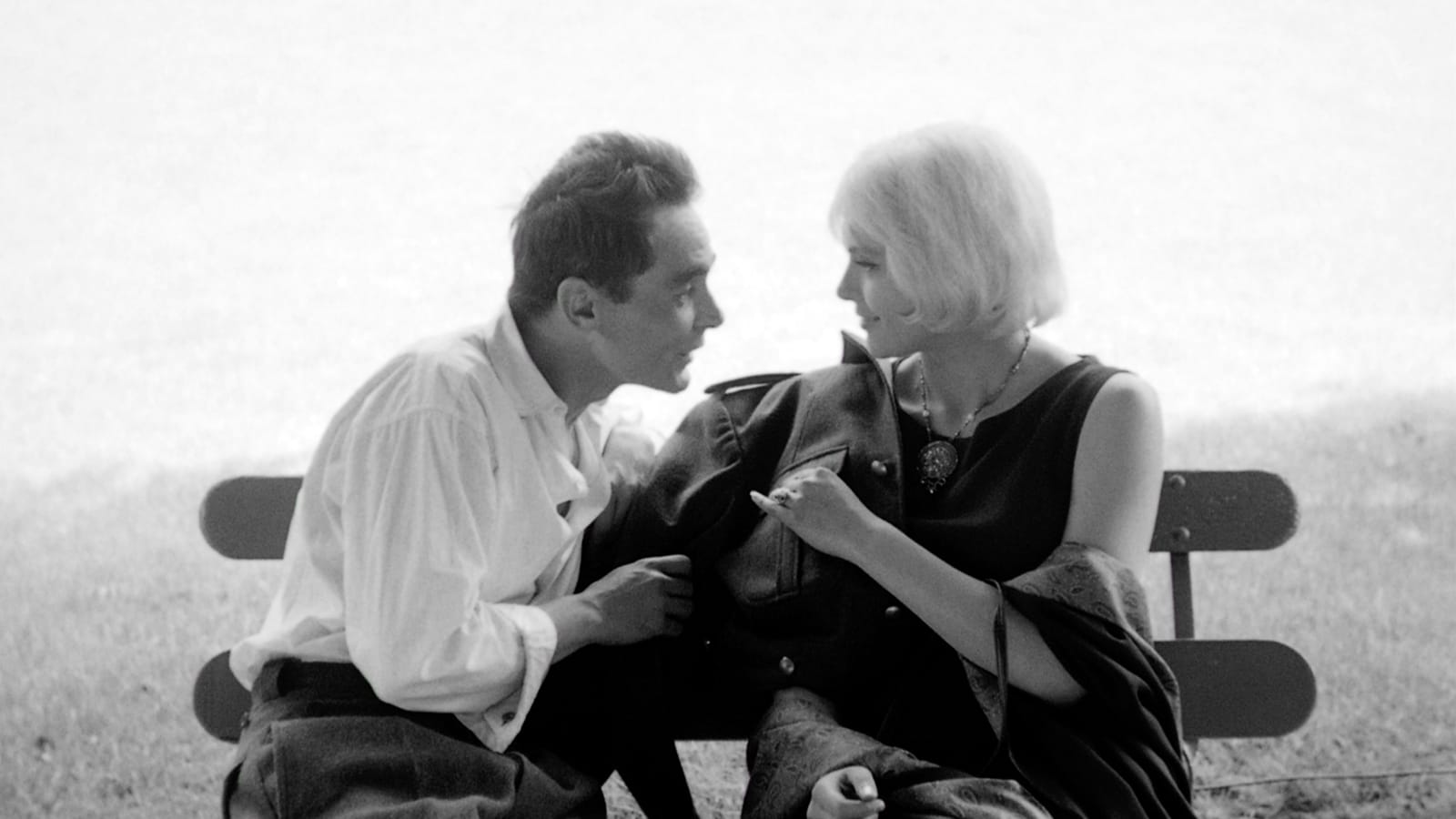
The prospect of death puts everything into perspective, but Cléo from 5 to 7 crafted a totally new one altogether. As it says in the title, the titular singer wanders the French capital in real time, with an ominous tarot card reading turning Cléo’s world into black and white, shifting the mood even as she tries to ease the worry by going through her regular day-to-day. But as she does so, filmmaker Agnès Varda crafts memorable images that subtly depict Cléo’s inner world. The camera pivots, swaps angles, changes point of view, and only moves into the conventional images and score when Cléo performs, whether that be in literally practice of her craft, or in the presence of other people depending on the role she plays in their life. It’s this thoughtful use of the camera, gaze, and of time itself that makes Cléo from 5 to 7 a standout drama from the French New Wave.

Donnie Darko is a cult film by director Richard Kelly, starring Jake Gyllenhaal. It’s about the troubled teenager Donnie who lives in a suburb and suddenly faces a person in a giant rabbit costume who tells him that the world is going to end in 28 days. If that didn’t make sense to you, don’t worry – it’s not about making sense. The film is a gorgeous exploration of a bizarre chain of events, a deep rabbit-hole of meaning and expression, fate and acceptance that practically begs for a second, third, or fourth watching.
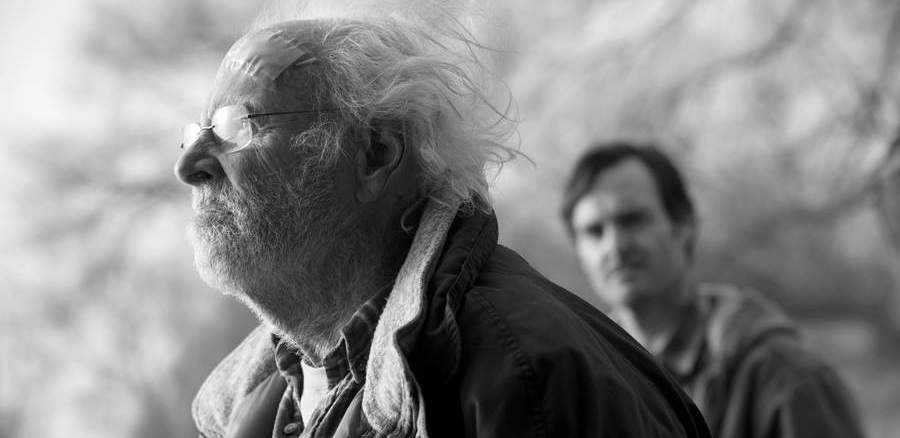
Nebraska is a poem distilled into a film. Peter Travers from Rolling Stone says “is it a comedy or a drama? Both at the same time, as life itself.” Everything about it is perfect: the acting, the photography, the story. In case that’s not enough and you need to know the plot to get convinced, I’ll tell you that it’s a road movie about a senile old man and his son. If you still want more information, you can Google it, but come on! You’ll just be wasting time that would be better spent on watching this masterpiece.
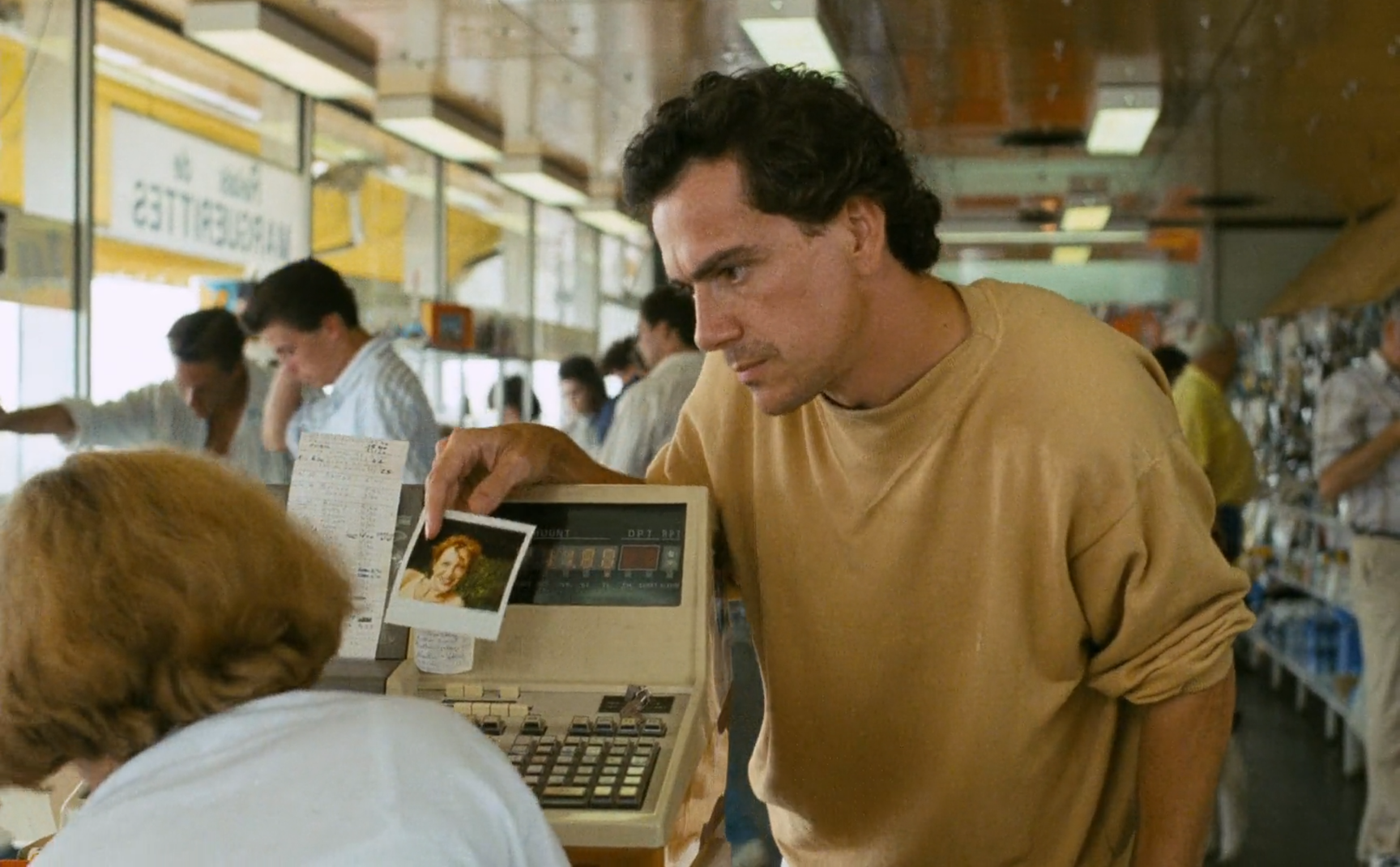
Fear of abandonment is at the heart of The Vanishing. Lovers Rex and Saskia are separated on their way to France after the latter vanishes without a trace. For the next three years, Rex dedicates his life to finding out what happened to Saskia in whatever way possible, endangering his own safety in the process. George Sluizer’s chilling psychological thriller shows the evils that curiosity and obsession can bring, and is a uniquely perverse look at the ugly side of truth-seeking.
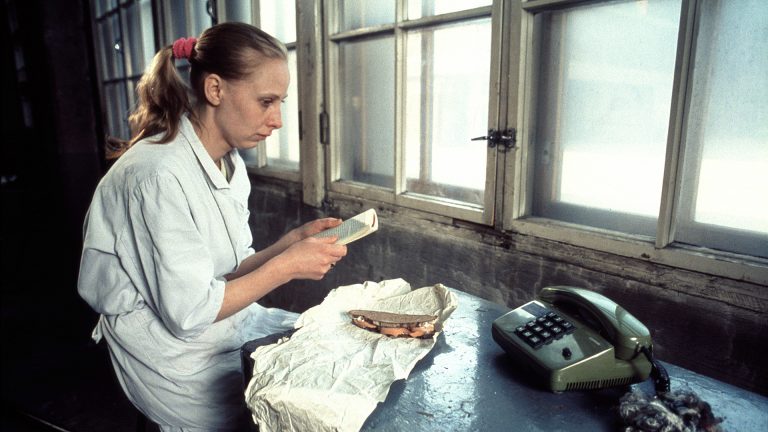
With its 69-minute runtime, ultra-minimalist approach to camera movement, and dialogue so sparse it could fit onto a single page, the first word that comes to mind when describing The Match Factory Girl is “lean.” The second word is “bleak”: for most of the film’s slight duration, we watch as the lonely titular character (Iris, played by Kati Outinen) passively endures a relentless barrage of cruelties, whether from her coldly detached parents, callous love interest, or simply fate itself.
And yet, these words — apt descriptors of the film as they are — only capture part of what makes The Match Factory Girl such a magnetic and unforgettable watch. When a late twist sees the film swerve into even darker territory, director Aki Kaurismäki’s twin approaches fuse into one that’s greater than the sum of its parts. Rendered in his characteristic deadpan style, the shocking event becomes sardonically funny — a gutsy move that only a real master of tone, as Kaurismäki is, could pull off.
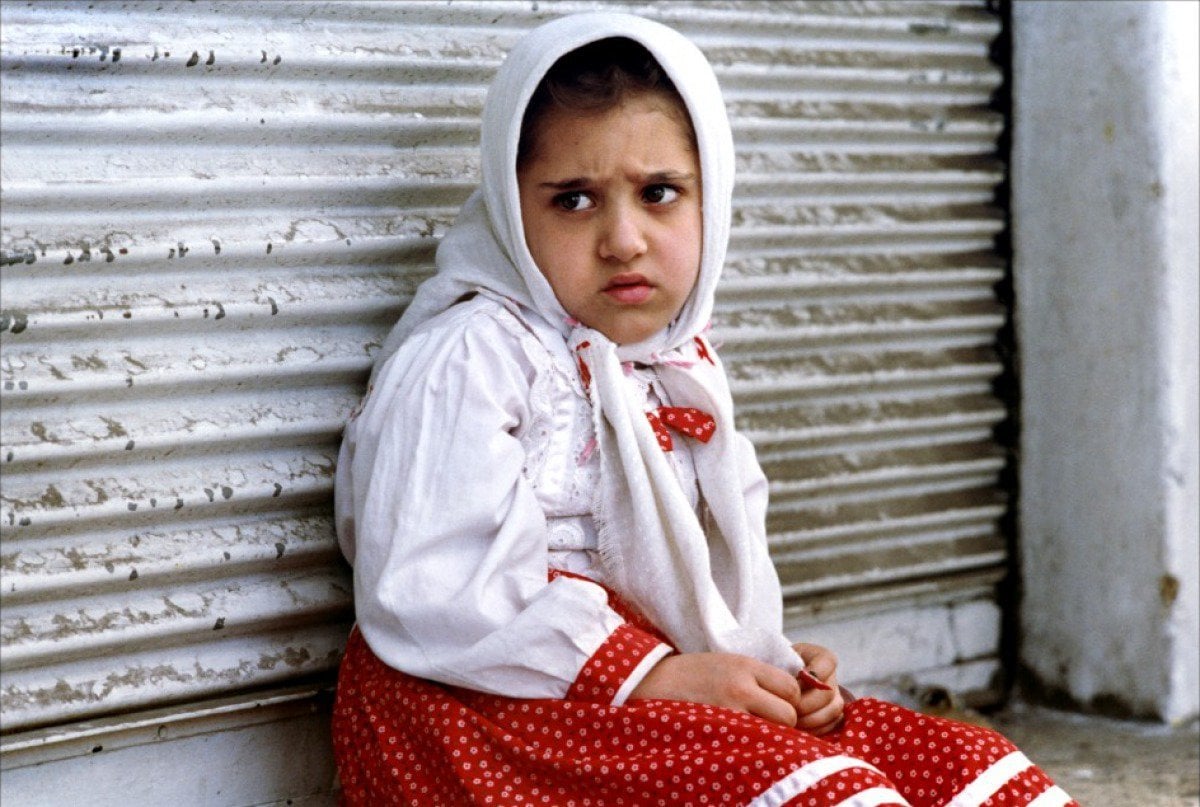
There’s a universe of hard-hitting emotion hiding in Jafar Panahi’s deceptively simple debut feature, which follows a seven-year-old girl’s attempts to buy a goldfish before Nowruz, the Persian New Year, dawns. From start to finish, her shopping trip only takes 80-something minutes, and all of the action is confined to a couple of Tehran’s streets — but, because we experience The White Balloon in real-time through determined young Raziah’s (Aida Mohammadkhani) perspective, her simple quest is transformed into a perilous and profoundly emotional odyssey for audiences. Every emotion — from fear to wonder — is magnified through Raziah’s eyes, so much so that an unfortunately timed gust of wind comes to feel like a punch in the gut, and the sight of a fluttering banknote a euphoric miracle. Co-written by master of the Iranian New Wave Abbas Kiarostami, The White Balloon wrings expansive humanism out of its tiny canvas.
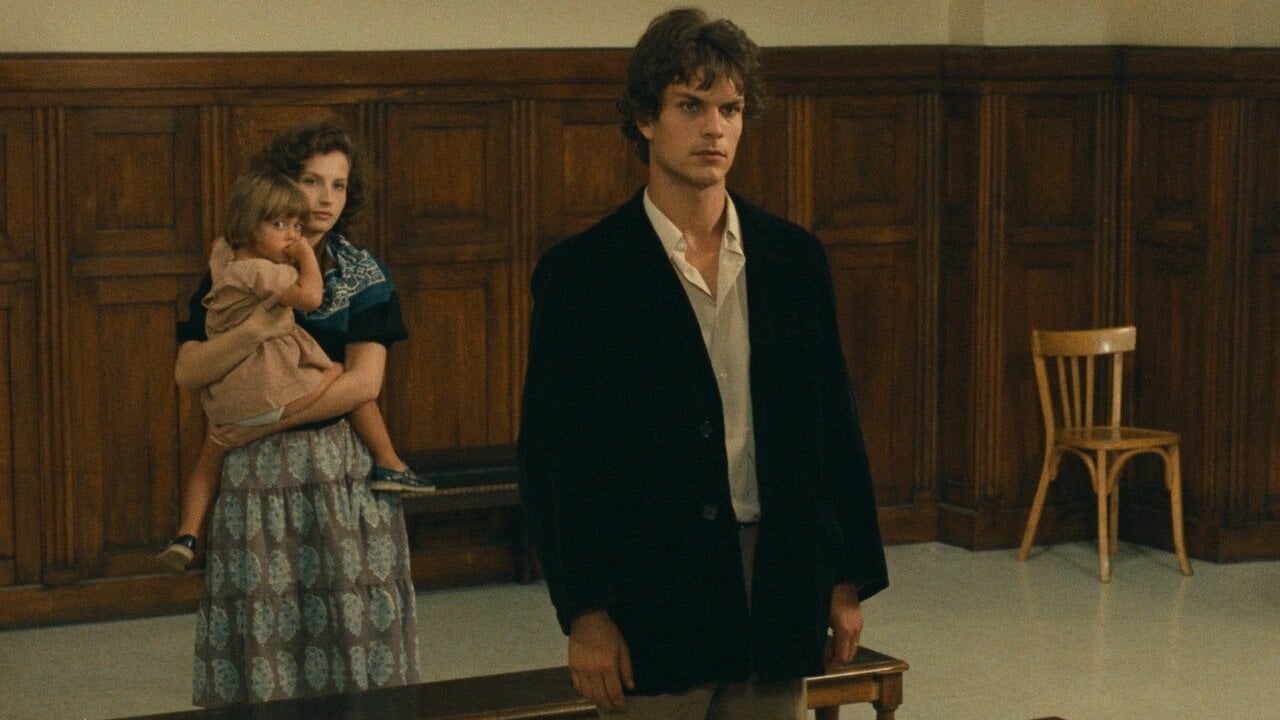
With his final film, octogenarian master filmmaker Robert Bresson found the violent, chilling truth in that old cliché, “money is the root of all evil.” L’Argent extends the simplicity of its title (literally, “Money”) into the fabric of the film, using an extremely bare style to track the devastating domino effect that a childish ruse has on one man’s life. When a shopkeeper realizes two schoolboys swindled him out of 500 francs with a counterfeit note, he decides to pass the problem on by paying delivery man Yvon (Christian Patey) with the false note. But when Yvon tries to pay for his lunch with the money, the police are called and his life unravels.
This is just the start of L’Argent’s clinical exploration of the meanness and littleness of man’s greedy spirit. Yvon’s downfall is chronicled with matter-of-fact coldness: everything onscreen is minimal, from the precise cinematography and frugal editing to the non-professional actors’ expressionlessness. This detached style encourages us to absorb all the bitter emotion of the story, which feels — in such an economical format as this — like a moral tale as old as time, but no less cutting.
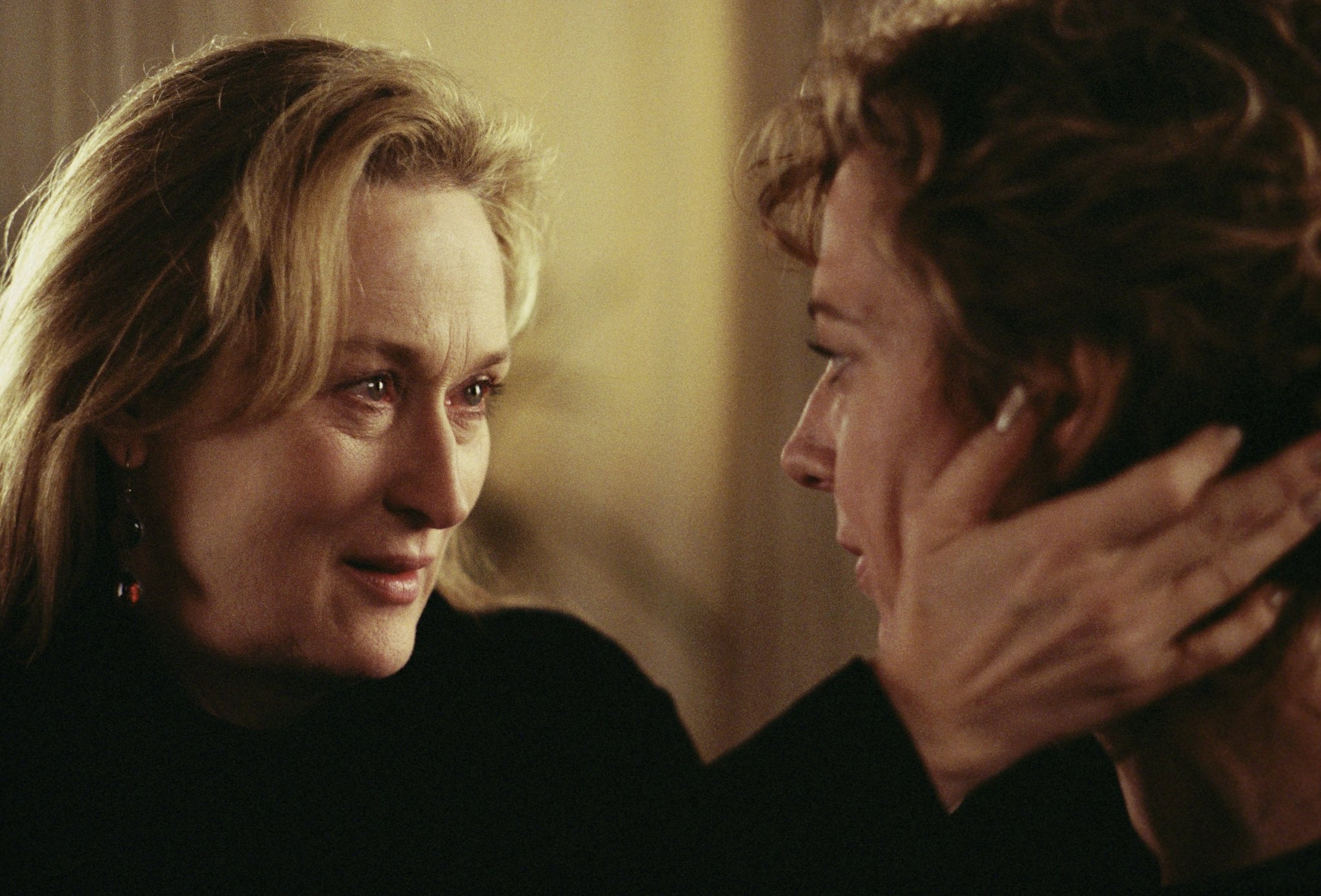
Why do we stay alive? Do we owe it to people to stay alive? Not everyone thinks about these existential questions, and even less are obsessed with them. But the characters in The Hours, who span centuries, do. It’s one of the few things that tie them together, along with female malaise and a love for literature. The film is so seamlessly stitched together, you barely notice when it slips into another era, or speaks to us through another character. It feels natural to jump into different timelines and collect all these different memories and observations, in the same way it feels natural for everything to happen all at once in life. Some reviews claim that, because of the dark themes the film covers, it can be hard to watch, but I don’t think I’ve had an easier time watching anything. The script is poetic, the performances heart-wrenchingly good (what a trio!), and the editing so smooth. This is a thoughtful film through and through, not just in content but in delivery too.
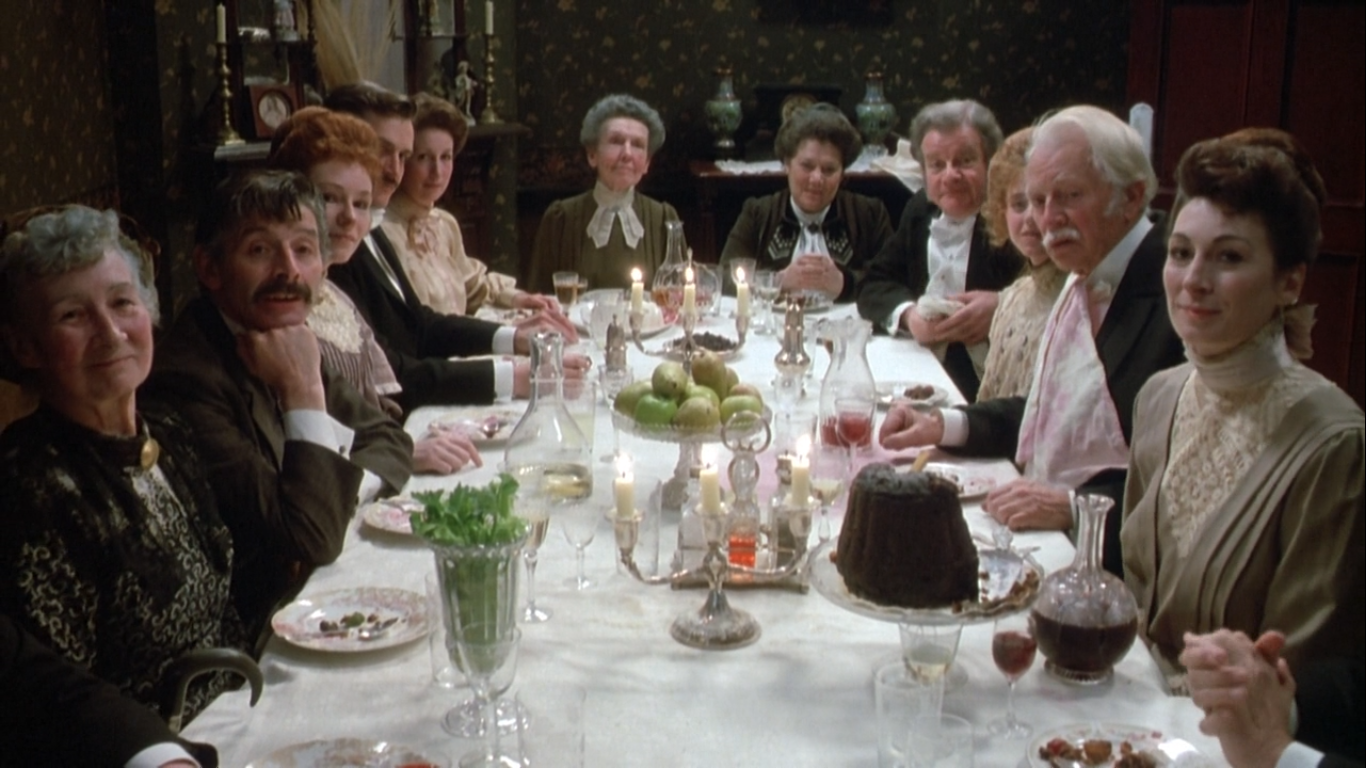
The last work by legendary American director John Huston is this exquisitely rendered adaptation of a James Joyce short story. The Dead is nestled inside an intimate festive dinner shared by the family and close friends of the Morkan sisters, two well-to-do elderly spinsters living in Dublin in 1904. The film is a family affair in more ways than just that, too: for Huston’s final feature, son Tony wrote the script and daughter Anjelica (as Gretta) was its star.
As with so many end-of-year gatherings, the prevailing mood of the dinner is one of sentimental nostalgia, as the hosts and their guests swap memories, toast each other, and tearily reminisce about the way things were. Anjelica Huston’s performance is also a quiet architect of that atmosphere, as Gretta slips in and out of dreamy reveries throughout the evening to the puzzlement of her husband Gabriel (Donal McCann) — something that surges to the fore in an astonishingly moving final revelation. Huston directed the film on his proverbial deathbed, which infuses it with significance — but, even if it wasn’t the capstone to his illustrious career, The Dead would still stand as one of the finest treatments of mortality and longing ever committed to the screen.
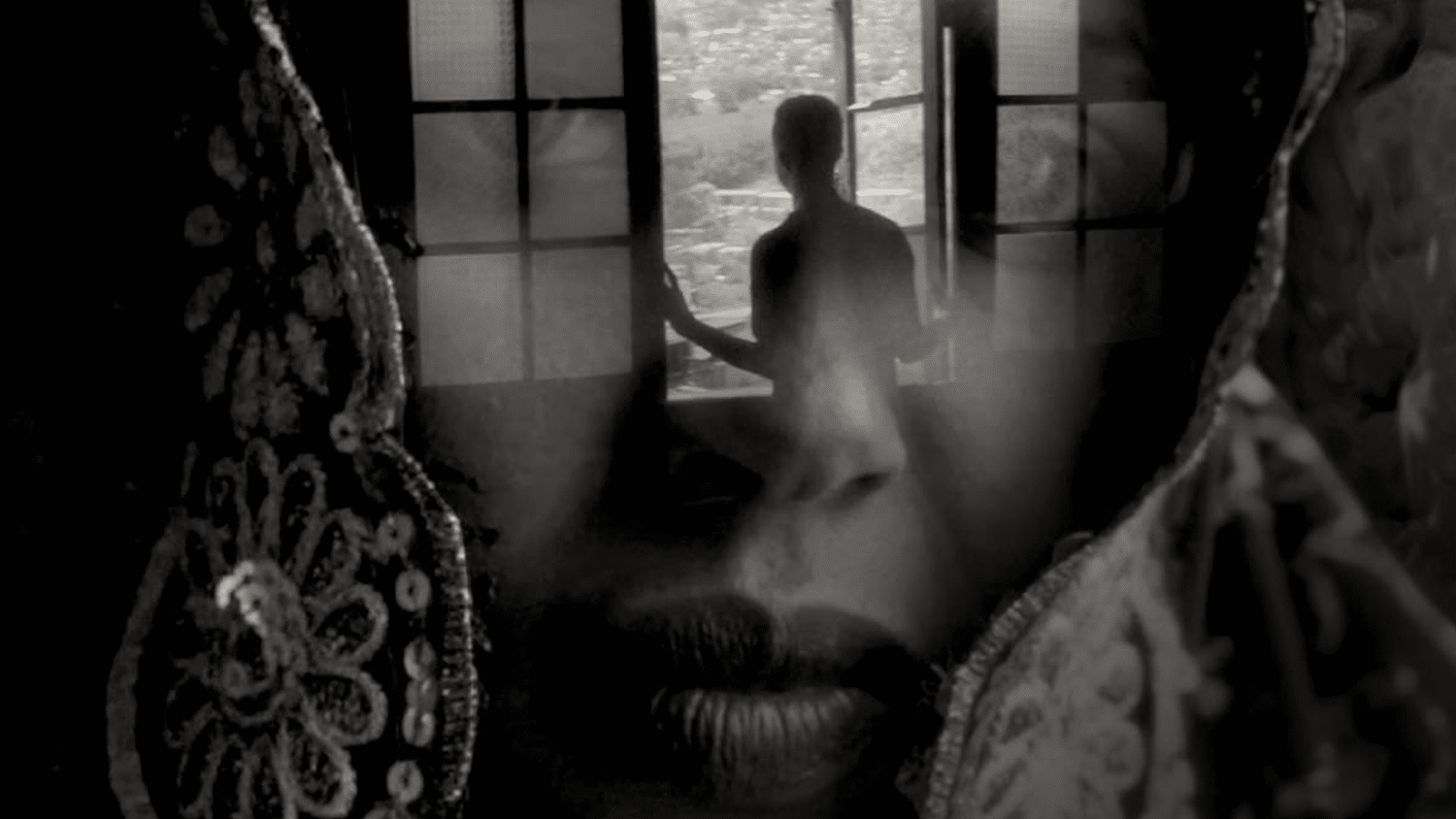
Though it’s without a plot, Faya Dayi nonetheless weaves a stunning, expansive narrative about khat and the people who farm it and chew its leaves for their hallucinogenic effect. The documentary seems to take place in the same hazy dreamlike stupor that khat-chewers chase: shot in luminous black and white, the film is set to a reflective rhythm that floats from folklore to contemporary stories of romantic heartbreak, migration, and oppression.
Largely featuring members of Ethiopia’s Oromo community — a marginalized ethnic group — including the farmers and workers involved in khat production, Faya Dayi is a portrait of economic hardship, emotional pain, and transcendent escape that hits straight in the chest for all the rawness and yearning it depicts. (As disembodied voice-overs put it, “people chew to get away” to the khat-induced “empty and lonely hideout where no one can ever visit you, your own dark and lonely world.”) Full of textures and images that evoke all of the senses, this is virtually a 5D movie, a hypnotic out-of-body experience that floats an astonishing expanse of ideas into your head — no talky explanations needed.
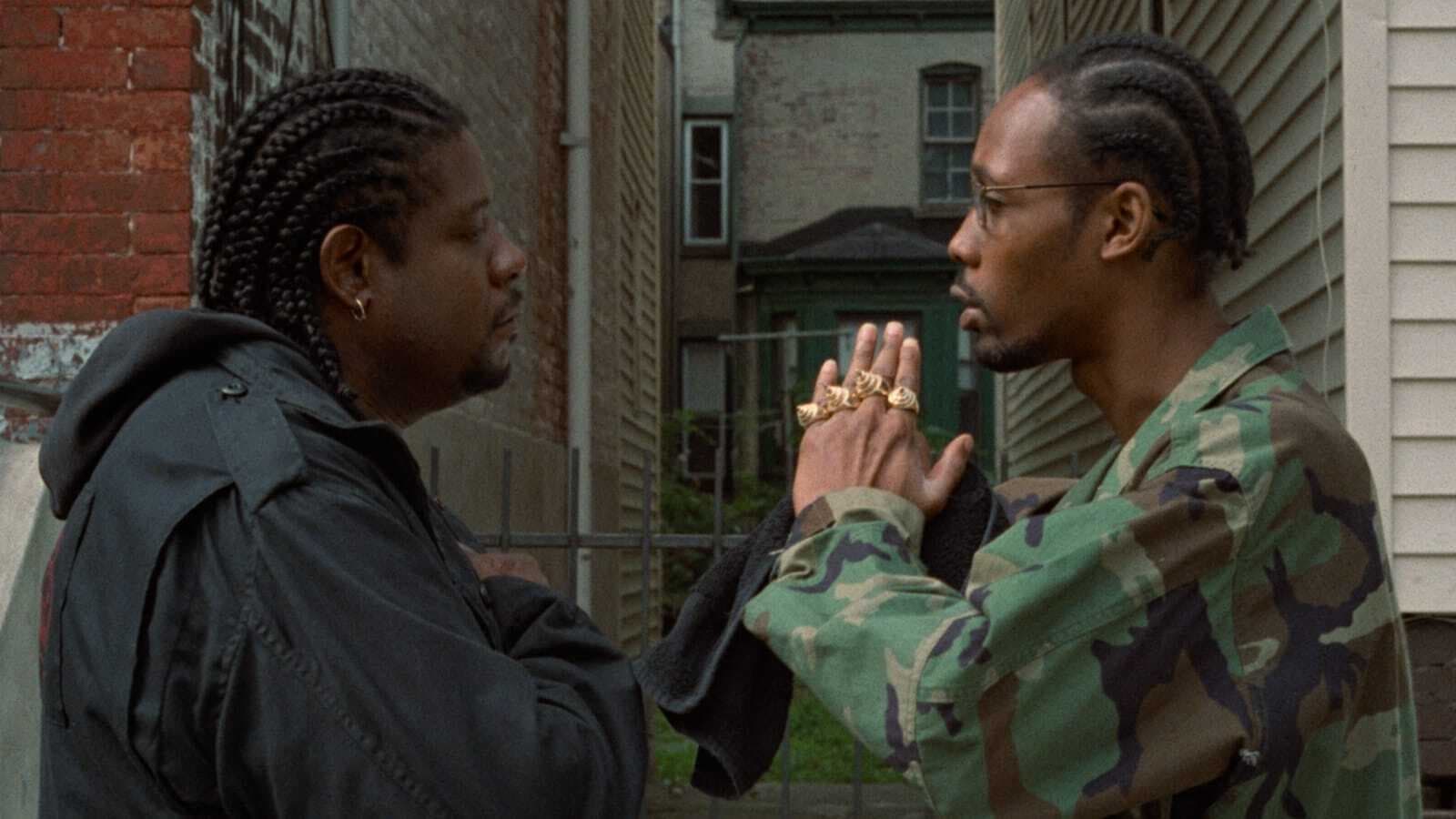
Director Jim Jarmusch audaciously combined the DNA of French noir classics with that of samurai and mafia movies to produce this utterly original film. As advised by the ancient Japanese manual it often quotes, though, Jarmusch’s movie also “makes the best” out of its own generation by adding hip-hop into its wry genre blend. The results are more than the sum of their parts, especially because the film is so eccentric: no matter how au fait with its inspirations you are, you still won’t see “Forest Whitaker plays a lonely hitman who wields and whooshes his silencer pistol like a samurai sword, lovingly tends pigeons, and can’t even speak the same language as his best friend” coming.
Ghost Dog’s strangeness is never jarring, though, thanks to Whitaker’s cool, collected performance, an atmospheric score by Wu-Tang Clan’s RZA, and the cinematography’s tendency to use smooth double exposures for scene transitions. It almost feels like we’re in another world: Jarmusch zooms in on the Bushido code obsessions of Whitaker’s single-minded character and the mafiosos’ dying laws, blurring out everything else so the movie becomes a meditation on the impulse to moralize one’s misdoings by subscribing to rigid definitions of “honor.” Not an exercise in surface style, then, but a bone-deep reflective masterpiece.
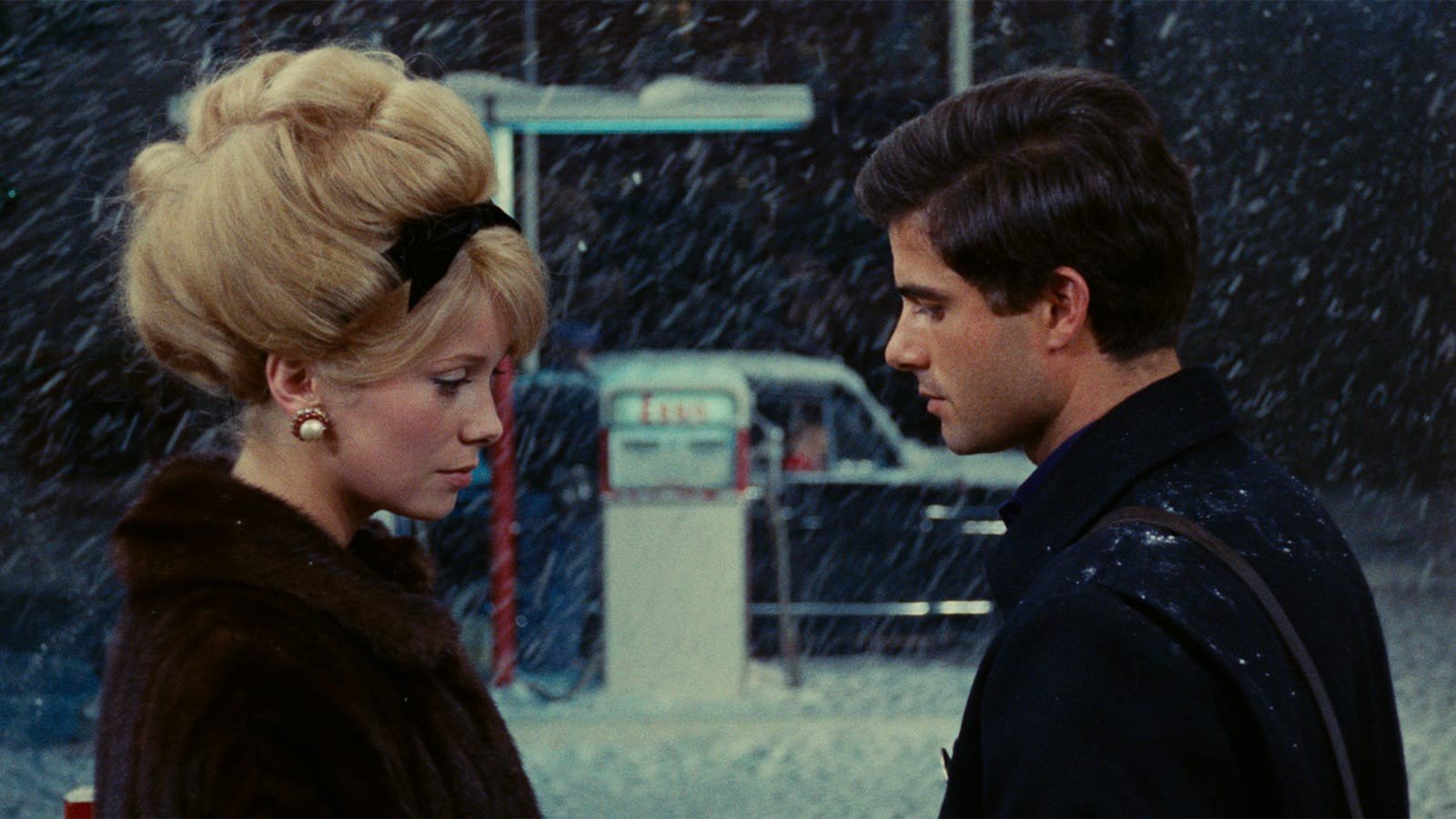
If we were to list down the best of the best movie musicals ever made, most of the titles would probably come from the Golden Age of Hollywood. But we’d be remiss to forget that just a few years later, all the way across the pond, came The Umbrellas of Cherbourg, a French romantic musical from Jacques Demy. It’s certainly in the running for the most gorgeous musical ever made, with the bold, dreamy colors, incredible camera work, stylish costumes, and two beautiful leads front and center, but what makes Cherbourg great is the lush composition made by Michel Legrand. With the sweeping violins and the tragic lyrics of Devant le Garage, to the catchy, jazzy Scène du Garage that starts off the film, Les Parapluies de Cherbourg brings together sublime visuals and sound into one of the greatest musicals ever made.
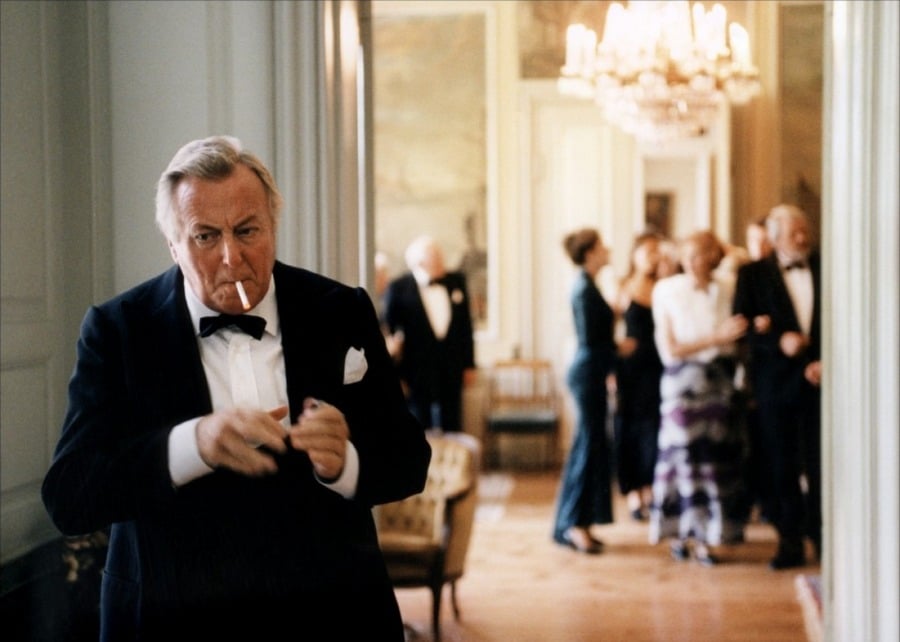
Whilst a classic in some circles, Festen is many things, but it’s definitely not mainstream entertainment. It was shot by Danish director, Thomas Vinterberg, who founded the Dogme 95 movement together with Lars von Trier in 1995, which sought to put the auteur director back at the heart of filmmaking, as opposed to the power of the studios or special effects. This was the first movie to come out from that group. You thought your family was messed up? Think again. This macabre, Poe-esque, gut-wrenching tale of debauchery will leave you feeling confused and slightly nauseous. This effect is exacerbated by Winterberg’s directing style and the crazy camerawork of Anthony Dod Mantle. With a highly volatile tone and a great cast, the effect Festen has on you is not easily shaken off.
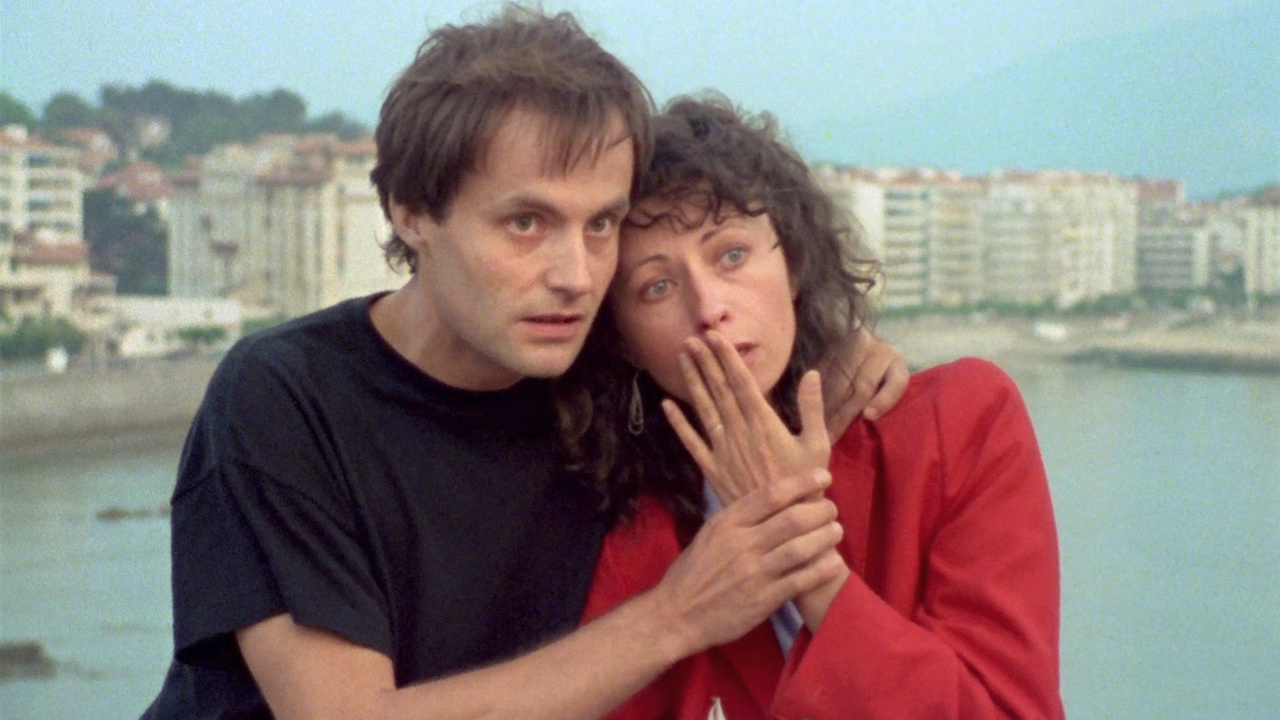
Éric Rohmer’s The Green Ray is the kind of film that you come away from being more honest with yourself. That effect is thanks to the contagious directness of its protagonist: Delphine (Marie Rivière), a newly single young French woman whose summer vacation plans have just been unceremoniously upturned after the friend she was going away with takes off with a man instead. Now at a loose end, the indecisive Delphine meanders between her home in Paris and several gorgeous holiday spots, but that old saying — “wherever you go, there you are” — proves true. Neither the beaches of Cherbourg and Biarritz nor the lofty beauty of an Alps resort can soothe her restlessness or give her what she’s looking for, probably because she doesn’t quite know what that is herself.
Delphine’s is an achingly familiar search for anyone who’s ever felt like they’ve drifted off of life’s path, but blessedly, the conversation-driven Green Ray doesn’t leave us wallowing in that despair. That’s partly thanks to its final moments — which rank among cinema’s most stunning — but mostly because Rivière, who improvised much of her incisive dialogue, puts into words things that so many have felt but few would admit. In that sense, The Green Ray feels as much like a miracle as its last shot does.
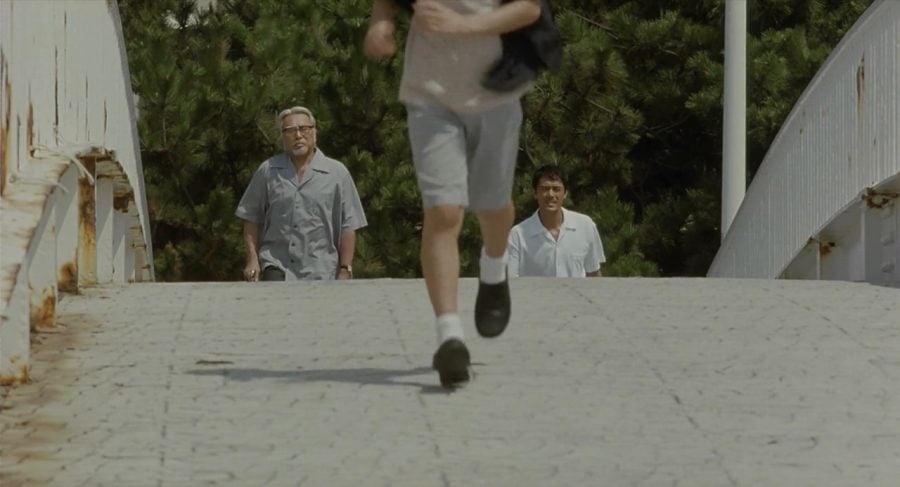
Koreeda is a master of the tender gaze. He deals so softly, elegantly, and emphatically with the characters in his films, it will make you feel like you’re watching life itself in all its complex, emotional splendor. Maybe this is particularly true for this movie because it has been inspired by Koreeda’s memories of his own childhood and the passing of his mother. Still Walking is a quietly toned movie spanning a period of 24 hours in the life of the Yokoyama family, as they gather to commemorate the passing of their eldest son. At the center of the story is the father, an emotionally distant man who commands respect both from his family and community. Opposite from him sits the other son, the black sheep, who seeks his father’s validation. Directed, written, and edited by Koreeda, this dynamic is one of many in this slice-of-life movie about how families deal with loss. And, however distant the culture or setting in Japan may seem to the outsider, you’re bound to recognize either yourself or your family among the tender scenes of this masterful drama.
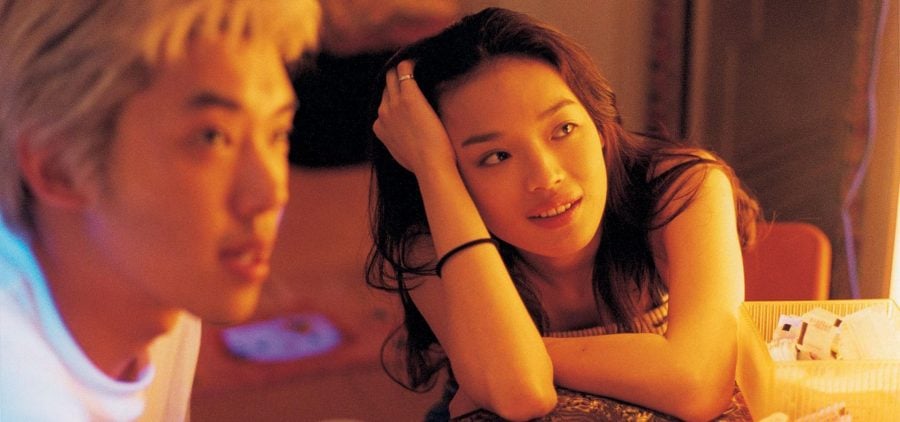
The atmosphere in Millennium Mambo is magical. The opening scene alone will leave you enchanted, with long walks through a tunnel-like space and dreamy techno music playing in the background. We are misled into thinking that this will be a movie full of colors and dance, and to some degree, this is true, as it portrays Taipei and its neon colors of green, pink, and blue, featuring dance sequences in a bar that serves flashy drinks. But as the movie develops, a chilling shadow is cast as we become entangled in a brutal relationship that is as full of cruelty as it is of love and lust. Narrated from the future, the story shows how the present-day protagonist, Vicky, grapples with her identity as she looks back upon her past self from ten years ago.
Chaotic, messy, but also peppered with moments of serenity and shot with flawless camerawork and cinematography, Millennium Mambo makes time feel fluid, and serves as a reminder that no matter how rough the journey may be, everything is always okay in the end.
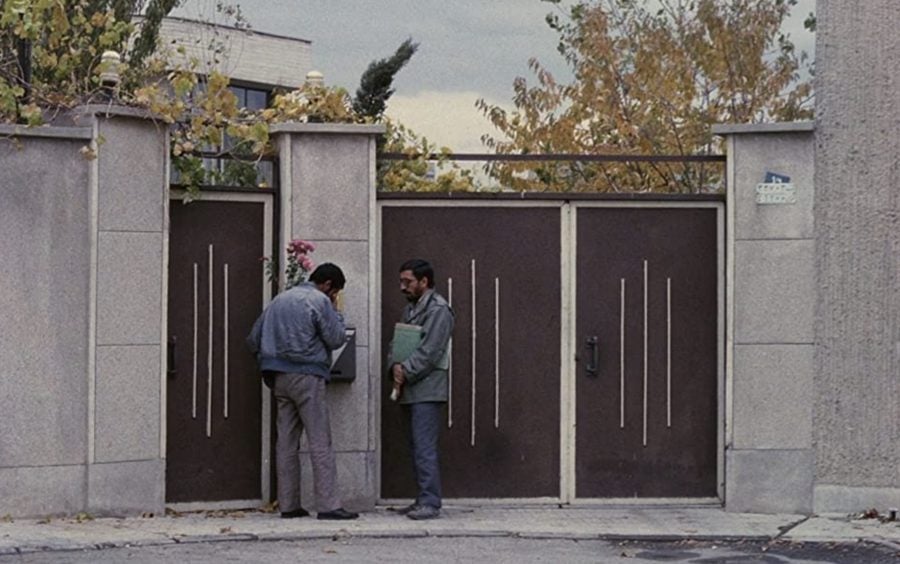
The apex of Abbas Kiarostami’s monumental filmography, Close-Up is a testament to the late directors’ ingenuity and humanism. Kiarostami documents the real-life trial of a man who impersonated fellow Iranian filmmaker Mohsen Makhmalbaf, and ingratiated himself to a family believing him to be the real deal. The courtroom drama and interviews are fascinating enough, but Kiarostami takes it one step further by having everyone involved reenact the events as they happened.
The result is an unparalleled piece of filmmaking that blurs the boundaries between documentary and narrative while posing vital questions about the exclusivity of cinema and the storytelling process. Despite its sophisticated constructions, Kiarostami’s direction is lucid and direct as it builds to a passionate and unforgettable conclusion.
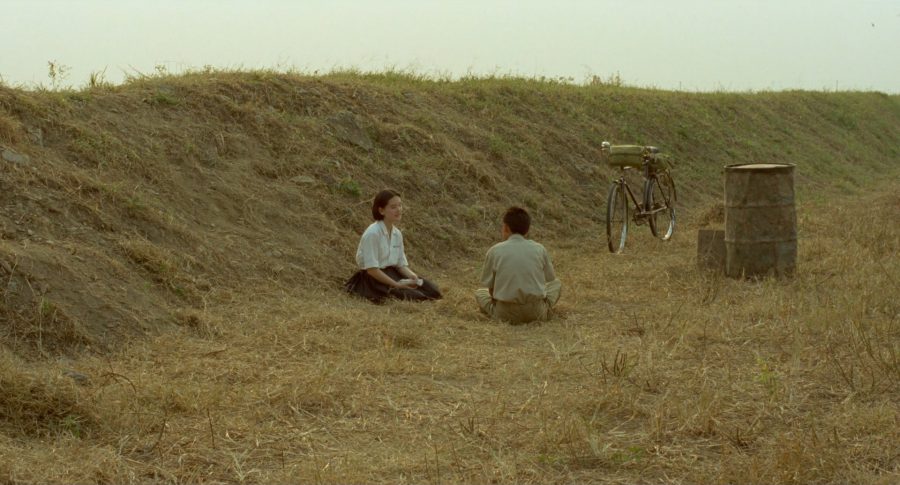
At nearly four hours long, A Brighter Summer Day is a sprawling, beautifully composed film that follows young Xiao Si’r and his eventual entanglements in nearly everything, from love to youth gangs to politics. While parts of the story, particularly its bone-chilling climax, are based on true events, the film is largely reconstructed from Edward Yang’s memories of the era he grew up in. As a result, the visuals feel crisp and true, tinged with just the right amount of nostalgia to balance the grittiness of its realism.
As coming-of-age films go, A Brighter Summer Day is certainly more on the tragic side. It’s also seminal in its specificity and depth—an absolute must-watch for any and all filmgoers.
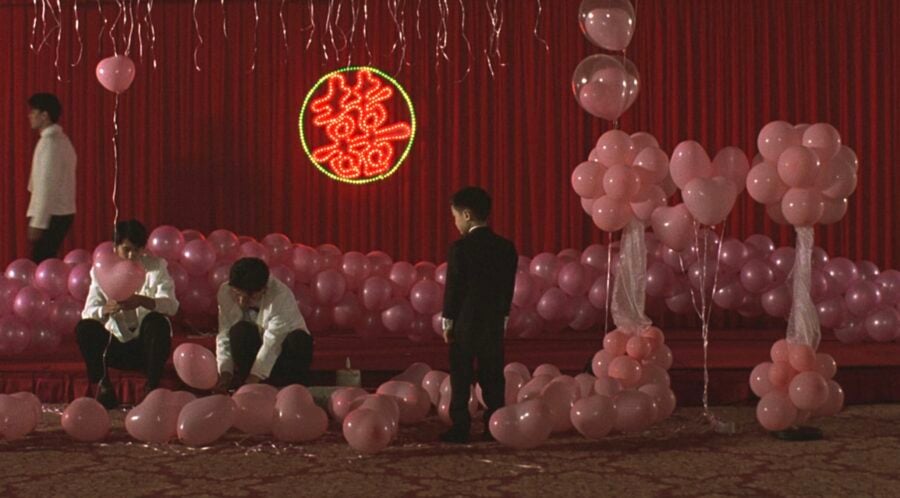
Edward Yang’s masterful and lush Yi Yi follows the lives of the Jian family and their respective, middle-class worries. The father agonizes over a business deal and, at the back of his mind, an old flame. The mother struggles with emptiness, the daughter with sensuality, and the son with his burgeoning artistry. In the periphery are other family members trying to get by as best they can despite having no certain future to look forward to. The story, which is bookended with life and death, is punctuated with these lingering anxieties but also, crucially, with moments of potent, profound joys.
The premise seems simple, but Yang weaves a breathtaking epic out of the mundane. The mise-en-scene is immersive, the dialogue delicate, and the direction effectively real. The understated elegance of each piece coming together to build a rich whole is what makes YiYi Yang’s legacy to the world of cinema.
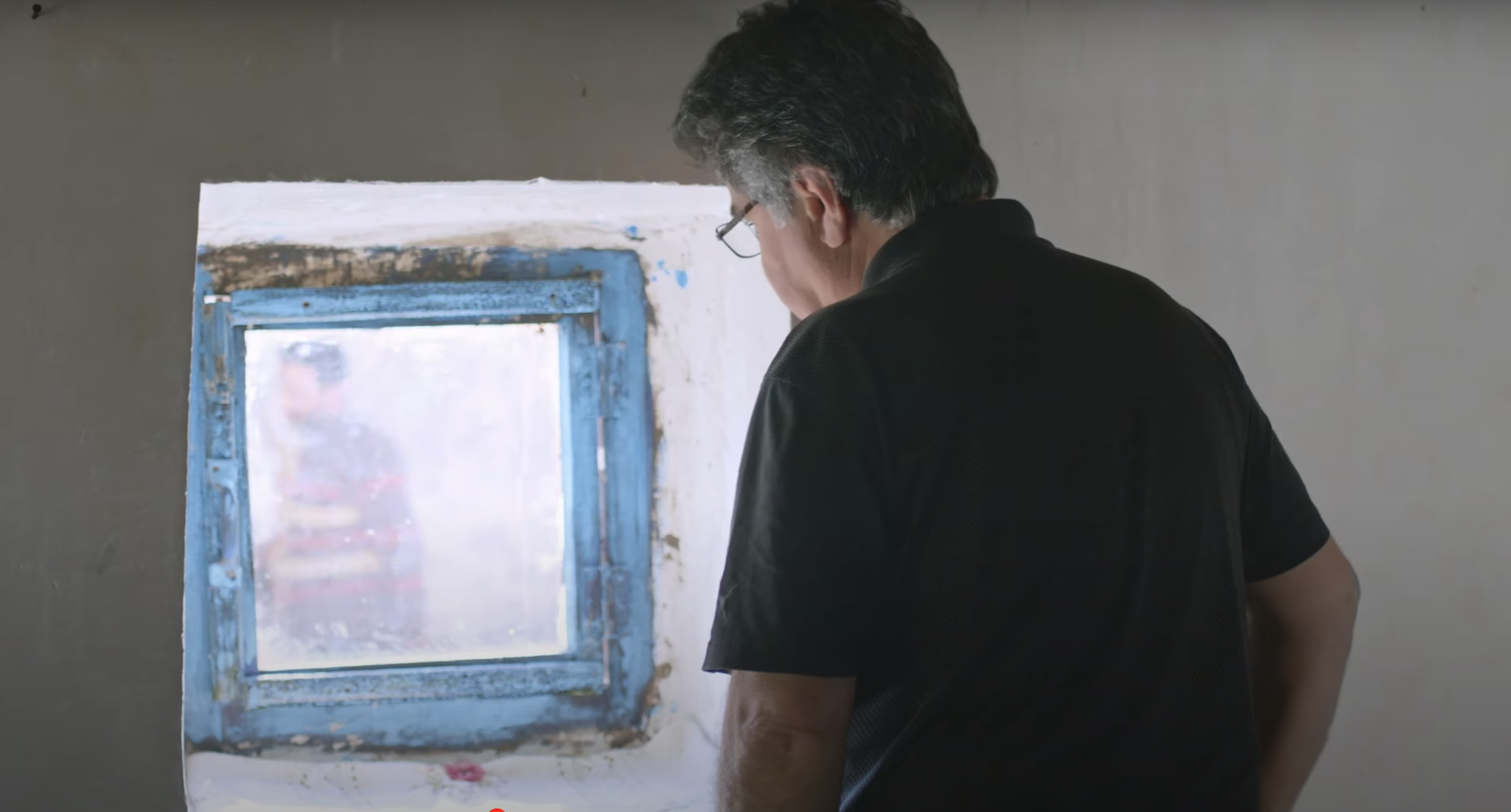
The Iranian director Jafar Panahi has faced constant persecution from his country’s government for over a decade, for his career of sharply political films speaking truth to power. In fact, No Bears—which was shot in secret, in defiance of the government banning him from filmmaking for 20 years—had its initial festival run in 2022 while Panahi was in prison. Evidence of Panahi’s drive to keep making his movies, no matter what, are clear in this film’s limited resources and occasionally inconsistent video quality. But even those obstacles can’t get in the way of his vaulting ambition.
No Bears operates on several different layers that all express Panahi’s growing frustration with—but also his commitment to—making art that only ever seems to put himself and other people in harm’s way. At its base level, this is a suspenseful small-town thriller, as an exiled Jafar Panahi (playing himself) tries to evade suspicion from the villagers around him. At the same time, Jafar is struggling to direct a film remotely, which creates a strain on his production crew. On top of that, the characters in his film undergo their own drama, seeking asylum out of Turkey. All of this is edited together under a stirring screenplay written with heart, humor, and the hope that the institutions that try to scare us will never keep us in the dark forever.
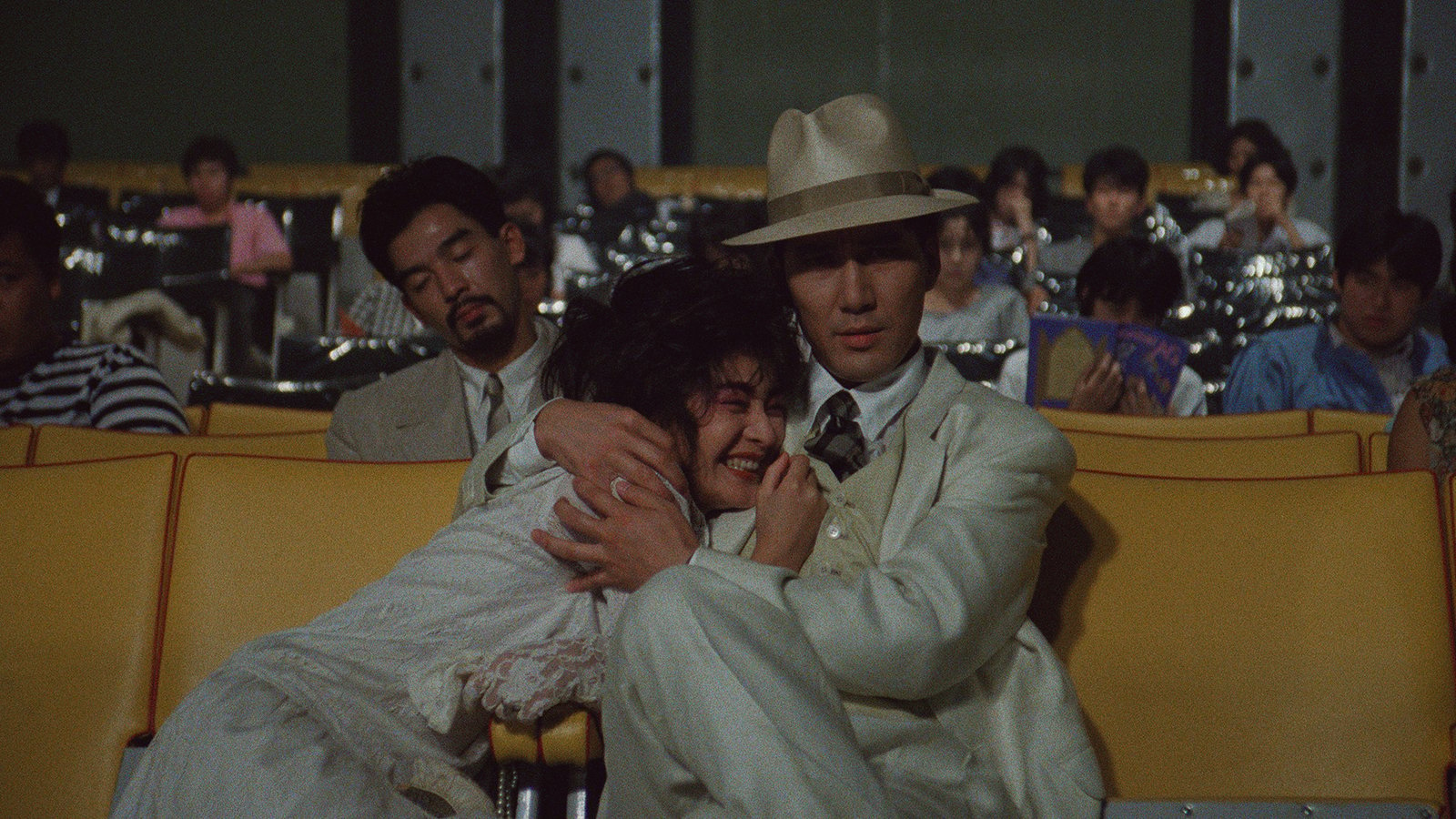
While billed as a “ramen western”, Tampopo satirizes plenty of other American genres, including, but not limited to: 1) the inspirational sports film, with Tampopo’s diligent training, 2) the erotic, arthouse drama through its egg yolk kiss, 3) the witty, social comedy pointing out the absurd in dinnertime tables, and 4) the melodramatic mafia romance with its room-serviced hotel getaway. But the film doesn’t buckle under the weight of carrying all these genres– instead, the customer vignettes are all delicately plated to balance out the hearty journey of a store owner learning about ramen and the bemused, yet cohesive contemplation about food. Tampopo is one of a kind.
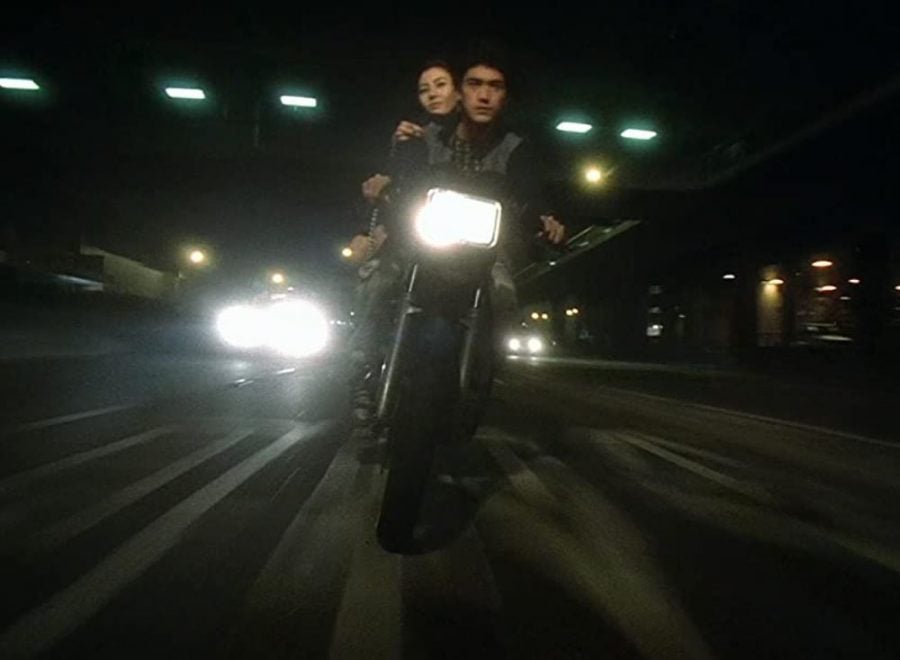
Wong Kar-wai’s dreamlike masterpiece is a perfect portrayal of the wilderness of a city at night. A hitman trying to get his job done, a woman hunting the prostitute who stole her boyfriend, and a mute who loves his father’s cooking: each of the characters in Fallen Angels is eccentric and interesting in their own way. Along the watch, you may find yourself overwhelmed by all the events taking place as each character fights to stay alive and satisfy their desire, but this is exactly where the beauty lies. A hazy view of Hong Kong is the backdrop for the characters’ riveting stories, blending loneliness, lust, as well as missed opportunities. Fallen Angels is a remarkably balanced film that not only exposes the coldness of people in the city, but also their warmth.
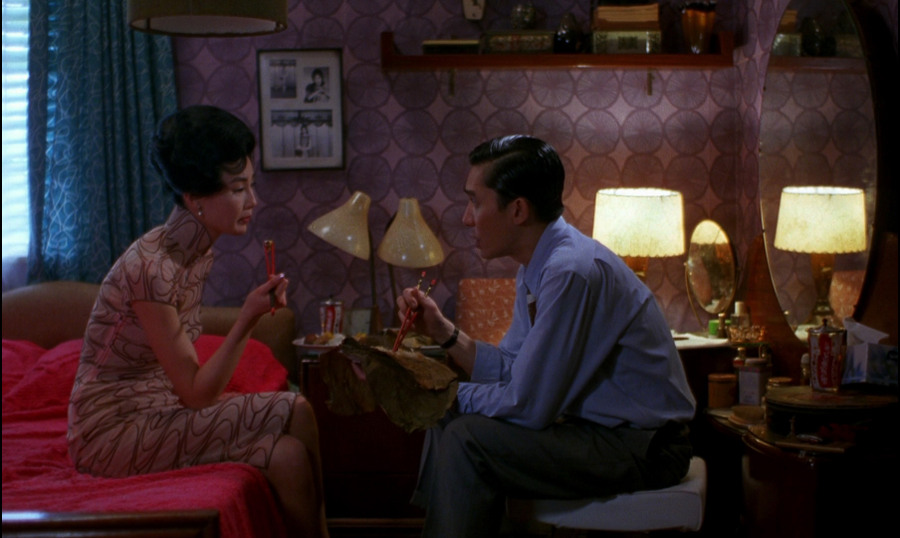
Called a masterpiece by many and featured on many best-of-the-21st-century lists, Director Wong Kar-wei has created a thing of singular beauty. Every frame is an artwork (painted, as it were, with help of cinematographer Christopher Doyle) in this meticulously and beautifully crafted film about the unrequited love of two people renting adjacent rooms in 1960s Hong Kong. These two people, played by Tony Leung and Maggie Cheung, struggle to stay true to their values rather than give in to their desires, while they both suspect their spouses of extramarital activities. The flawless acting, stunning visuals, and dream-like beauty of In the Mood for Love perfectly captures the melancholy of repressed emotions and unfulfilled love. The cello motif of Shigeru Umebayashi’s main theme will haunt you long after you finished watching.
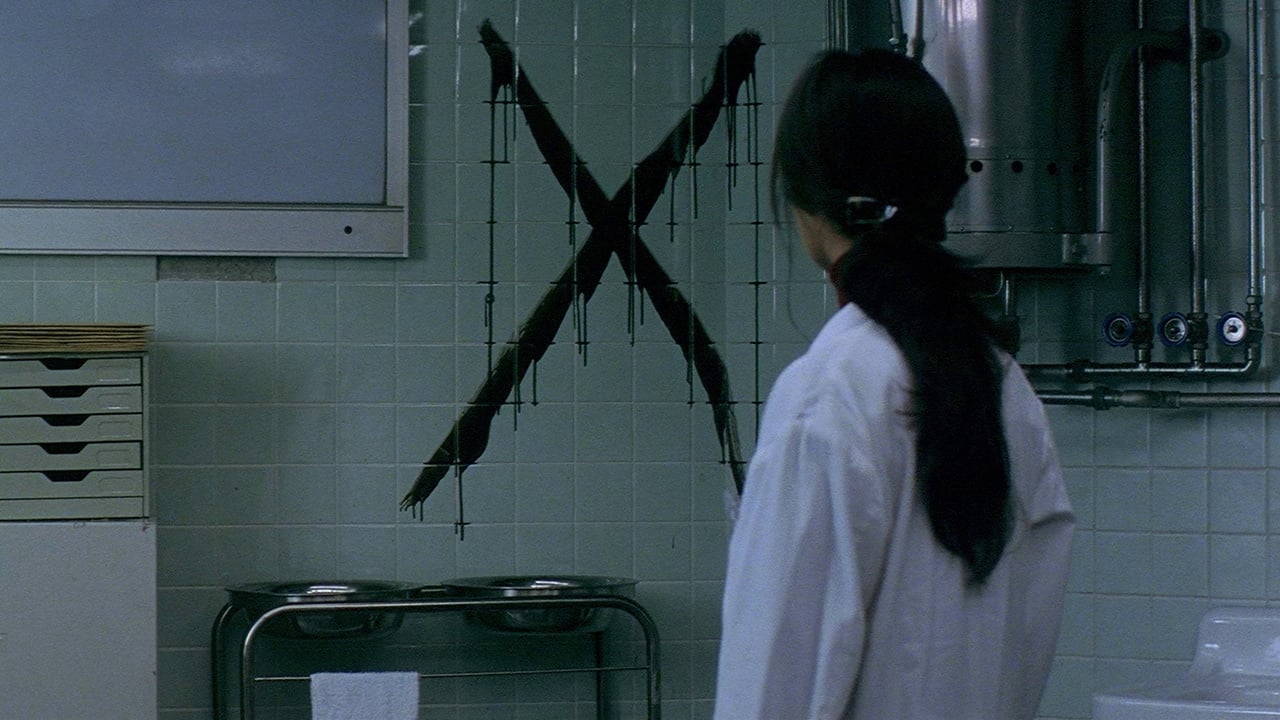
Cure is about a mad society, where both cure and sickness might be one and the same. Director Kiyoshi Kurosawa subverts the police procedural into an interrogation without definite answers, an abstract study on the evil that resides and is suppressed in every person’s heart. Unlike most horror films, Cure’s scares are left in plain sight, hypnotically mesmerizing as they are gruesome, with a sense of mundanity associated with other Japanese masters like Ozu or Kore-eda. “At the time it just seemed the right thing to do,” a man answers when asked why he killed his wife, and it is this contradictorily calm, nonchalant demeanor that creates a feeling of unease in the film’s horror aesthetic.
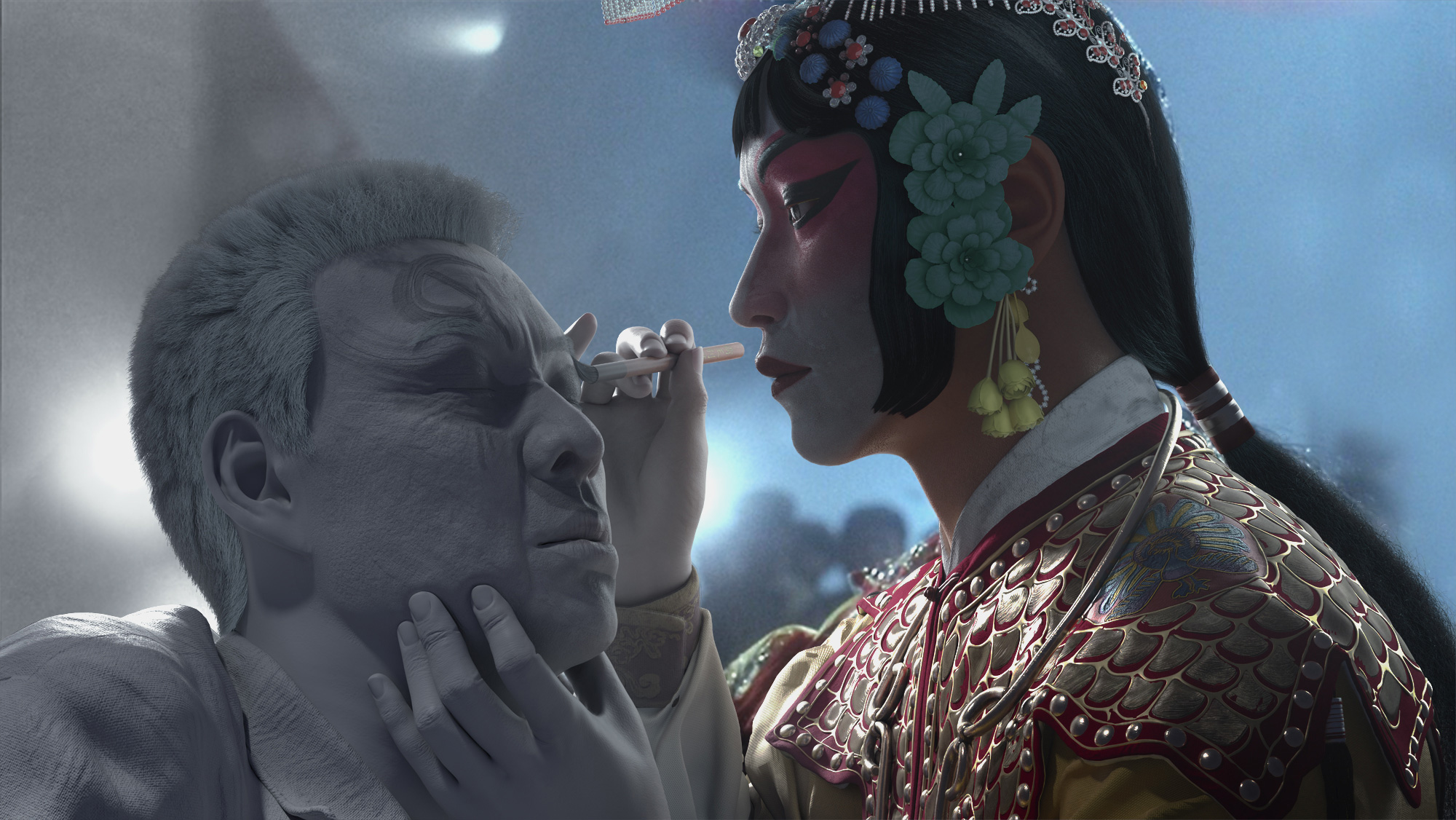
Thirty years after its release, the first ever Chinese language Palme d’Or winner has finally been made more accessible through Criterion Channel through its uncut 4K restoration. Farewell My Concubine is one of those classical epics that is considered essential viewing, but even with its near 3 hour runtime, the film still holds up all these decades later with its startlingly heartrending love story and depiction of the tumultuous shifts of 20th century China. Director Chen Kaige masterfully balances both sides, tapping into the pain Dieyi (Leslie Chung) chooses as he clings to the classical opera, the very art form that allows him a sliver of his unrequited love to be realized, but that is also limited depending on whichever government is in charge at the moment. It’s possibly one of the most beautiful and most miserable films ever made.
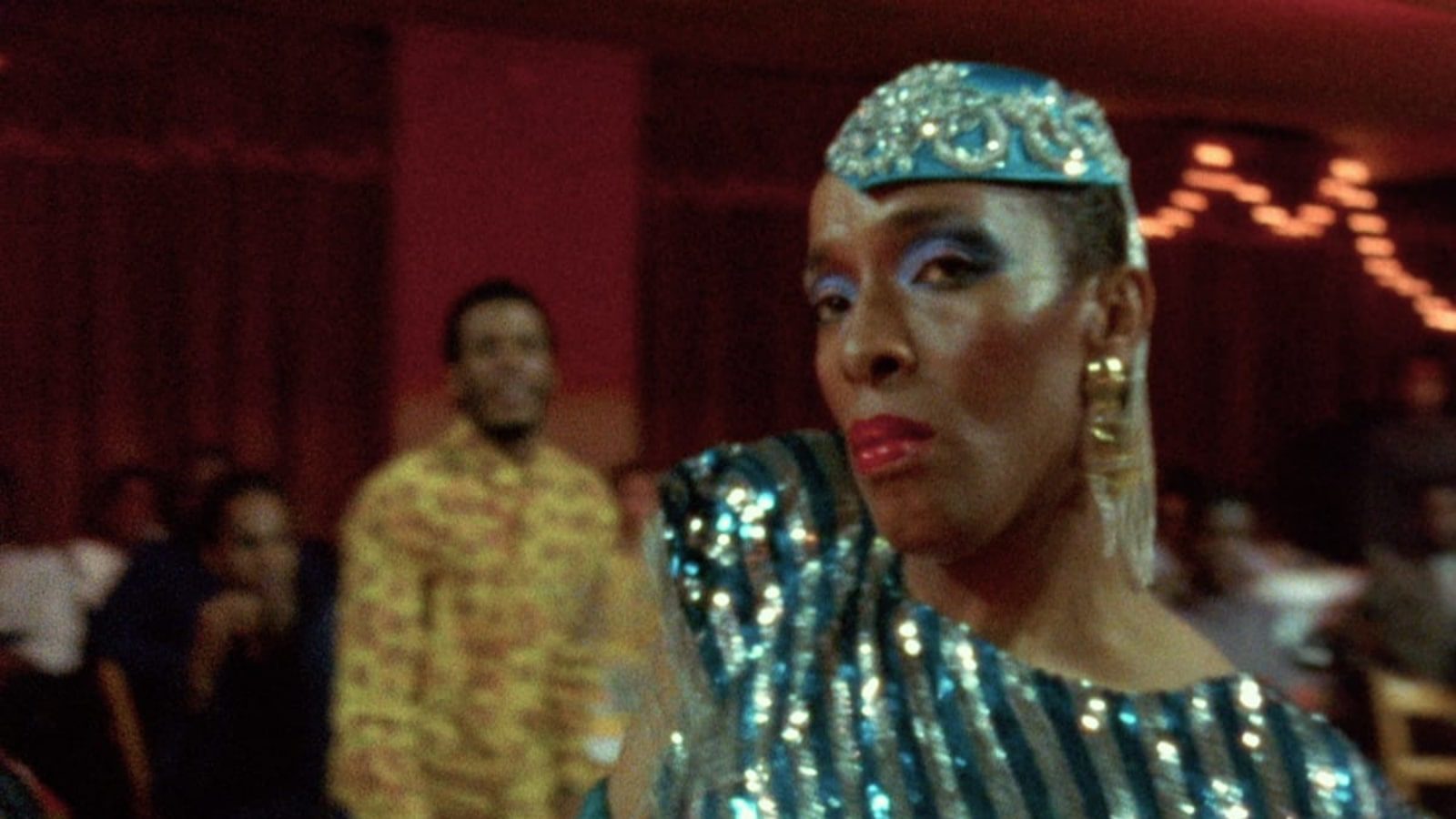
Though the drag scene is alive and well today, Paris is Burning is an important reminder that it didn’t always used to be that way. Over the course of seven years, Director Jennie Livingston leads us underneath the crime-ridden streets of 80s New York, where a glittery drag subculture is flourishing, despite all odds. Leading the community are the so-called mothers, the best performers and most fashionable of them all, tasked with inspiring and caring for newcomers. Nevermind that they’re shunned by society and suffocated (sometimes literally) by hateful homophobes and racists; when there is a ball, all that matters is that they strut, dance, and put on the best damn show of their lives. What they do is art, and Livingston makes sure to exalt the craft and pride that goes into it. At the same time, intimate interviews with iconic queens like Pepper LaBeija and Willi Ninja reveal the heartbreaking nature of the community. Most, if not all, have endured some form of abuse, and many risk their lives to earn a decent living. But again, Livingston refuses to reduce them to pure tragedy; she gets them to share their wonderfully big dreams, then gets us to hope along with them that they might just come true.

Written and directed by Academy-Award-winning Kenneth Lonergan (Manchester by the Sea, Gangs of New York), you can certainly count on the qualities of this subtle, beautiful, and moving drama about two siblings growing apart and reuniting later in life.
An Academy-Award-nominated Laura Linney plays Sammy, a single mother in a small town who is extremely protective of her 8-year-old son. When her younger and somewhat troubled brother Terry (played by the ever-reliable Mark Ruffalo) visits her out of the blue, Sammy has to deal with a slew of contradicting emotions towards her brother, whose appearance threatens to upend her life as she knew it.
Straight, thoughtful, and beautifully crafted, You Can Count on Me is an honest and genuine exploration of unconditional love in celluloid form. Think of it as much more hopeful The Skeleton Twins.
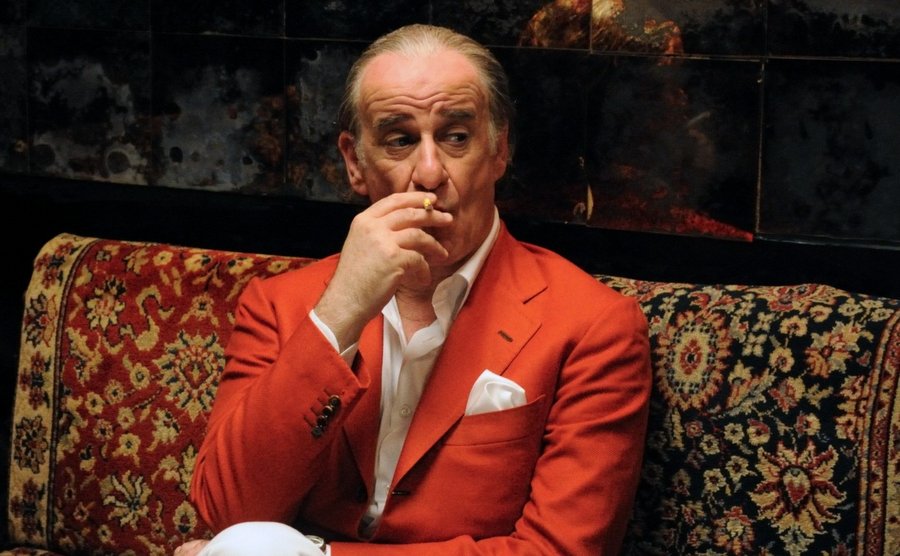
The Great Beauty is a film of superlatives! Originally titled La Grande Bellezza, this movie by Italian star director Paolo Sorrentino is so replete with lush, opulent cinematography, it sometimes borders on sensory overload. Having won Best Foreign Language Film at the 86th Academy Awards, as well as the Golden Globe, and the BAFTA award in the same category, The Great Beauty is also a critics’ darling and an award-show sweeper – in addition to being hailed as Paolo Sorrentino’s greatest work to date.
Essentially a tragicomedy, it is both a study and a celebration of the hedonism and decadence of its main protagonist – the bon-vivant and modern-day Roman socialite Jep Gambardella (played by an electrifying Toni Servillo). Instead of honing the craft of writing, Gambardella at some point decides to become the self-proclaimed “king of high life” of Rome. After his 65th birthday, he experiences a shock that changes him for good, prompting him to look past the parties and the nightclubs and to discover the sublime beauty of his hometown, the eternal city. In this way, The Great Beauty is a meditation on art, regret, and pleasure – and Sorrentino’s love letter to Rome.
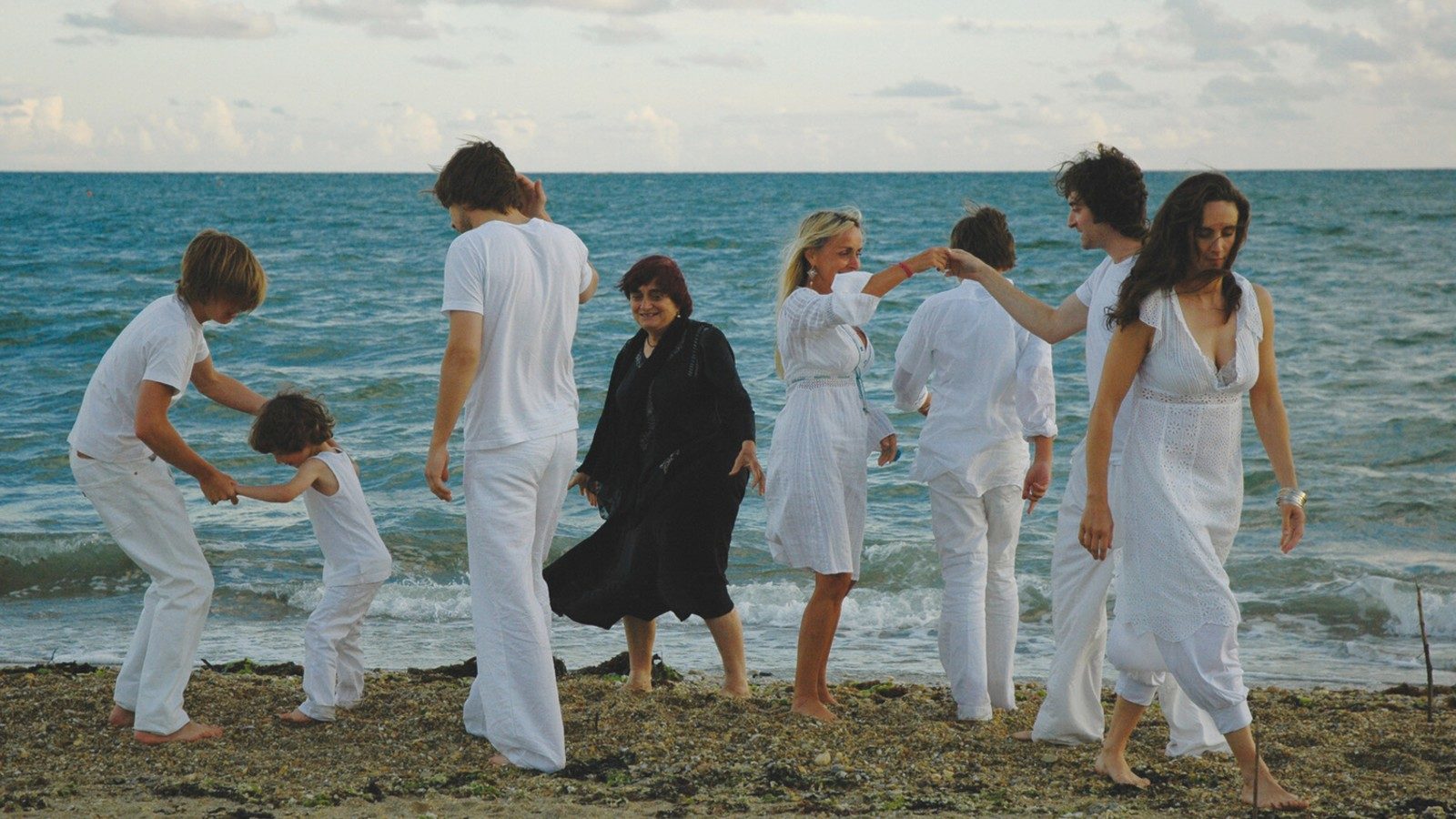
It’s a testament to Agnès Varda’s remarkable ability to glean so much raw beauty and truth from the world that this autobiographical documentary is such a rewarding watch, even for people unfamiliar with her. The Beaches finds the pioneering director in reflective mode as she looks back at her work and life, but her artistic impulses are by no means stagnant: she approaches the past with the same — if not more of the — generous candor and youthful spirit that colored her career.
It’s also a testament to Varda’s inimitable artistic touch that she turns a usually-bleak subject — mortality — into something this life-affirming. The Beaches was made when she was 81, aware of her own ticking clock and still nursing the decades-long loss of so many loved ones (chiefly, husband Jacques Demy). Just as her grief-stricken reflections don’t overwhelm the film with sadness, the whimsical impulses she indulges here — like constructing a beach on the street in front of her office — don’t blunt the sharpness of her candor. The overall effect is bittersweet and profoundly inspiring: as with the mirrors she places in front of the tide in the film’s first scene, she’s showing us it’s possible to face the inescapable with a twinkle in your eye.
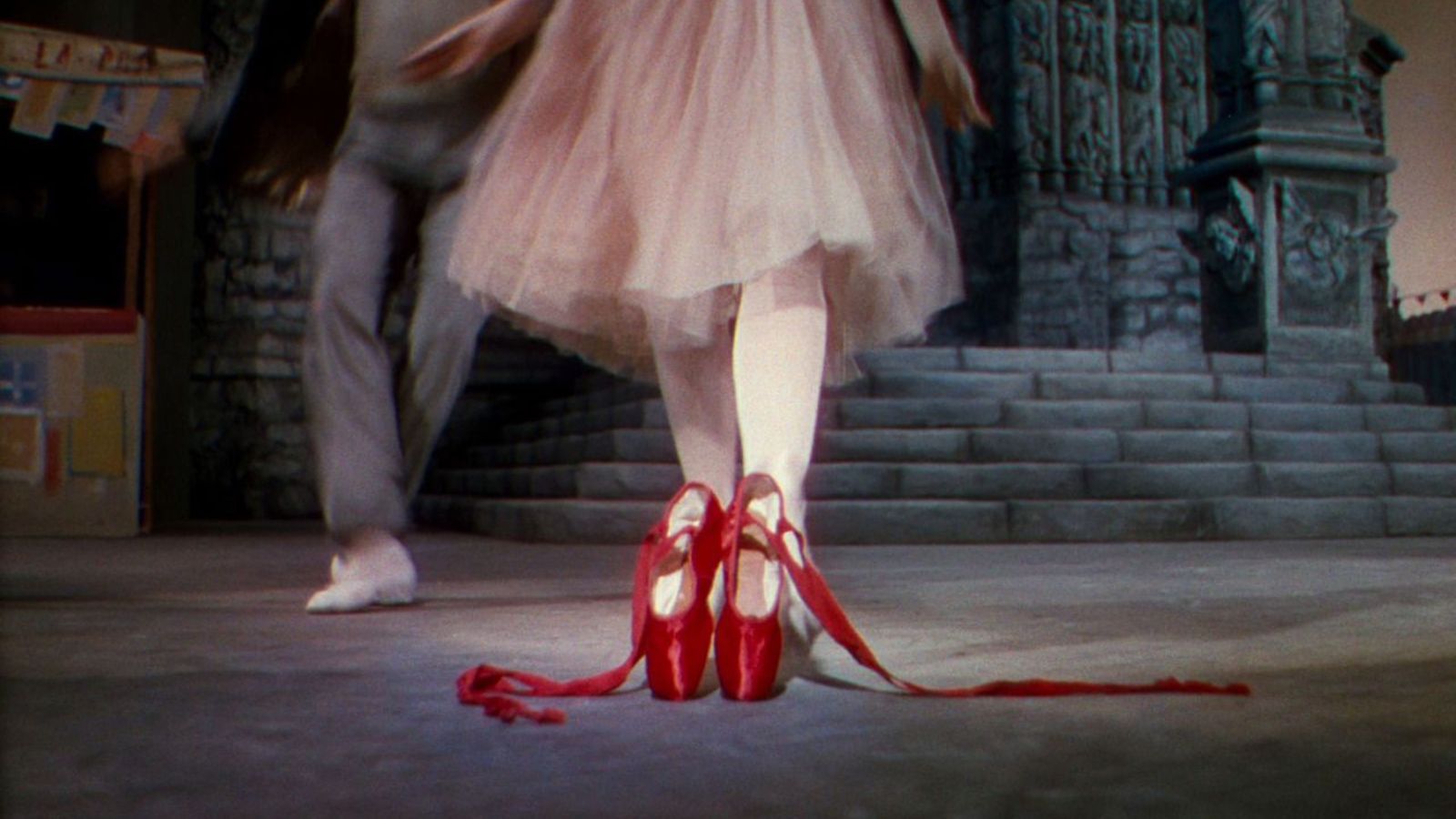
While today’s moviegoers would likely pick Black Swan as the ballet film of choice, there is one film classic that brings the title of the best ballet film in contention. That is The Red Shoes. It first divided critics of film and ballet alike, but as time went by, the spectacular drama from Michael Powell and Emeric Pressburger deservedly garnered acclaim for the brilliant, novel ways of bridging the gap between art forms. Of course, the most obvious of these is the lush, stunning 17-minute dance sequence that first incorporated dynamic camera movement to the choreography, and captured Han Christian Andersen’s story to its essentials. But aside from just depicting the dance, The Archers reconfigured every other single aspect of film to bend toward the movement without breaking the beauty of every shot– the scoring, the casting, the production design, and the ballet-within-a-film plotline. It’s because of this that The Red Shoes garnered a legacy of being one of the best ballet films, one of the best British films, and even one of the greatest films ever made.

